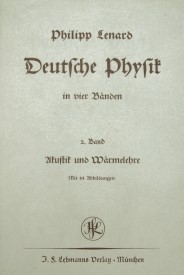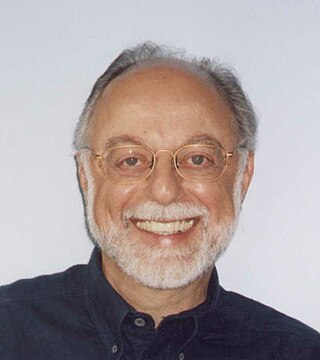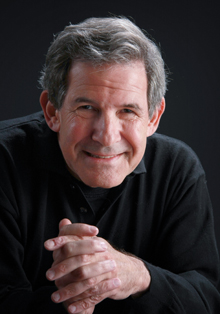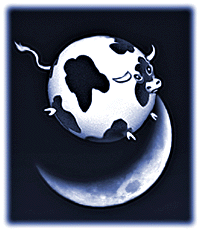Related Research Articles

Physics is the natural science of matter, involving the study of matter, its fundamental constituents, its motion and behavior through space and time, and the related entities of energy and force. Physics is one of the most fundamental scientific disciplines, with its main goal being to understand how the universe behaves. A scientist who specializes in the field of physics is called a physicist.

A physicist is a scientist who specializes in the field of physics, which encompasses the interactions of matter and energy at all length and time scales in the physical universe. Physicists generally are interested in the root or ultimate causes of phenomena, and usually frame their understanding in mathematical terms. They work across a wide range of research fields, spanning all length scales: from sub-atomic and particle physics, through biological physics, to cosmological length scales encompassing the universe as a whole. The field generally includes two types of physicists: experimental physicists who specialize in the observation of natural phenomena and the development and analysis of experiments, and theoretical physicists who specialize in mathematical modeling of physical systems to rationalize, explain and predict natural phenomena.
The Sokal affair, also called the Sokal hoax, was a demonstrative scholarly hoax performed by Alan Sokal, a physics professor at New York University and University College London. In 1996, Sokal submitted an article to Social Text, an academic journal of cultural studies. The submission was an experiment to test the journal's intellectual rigor, specifically to investigate whether "a leading North American journal of cultural studies—whose editorial collective includes such luminaries as Fredric Jameson and Andrew Ross—[would] publish an article liberally salted with nonsense if (a) it sounded good and (b) it flattered the editors' ideological preconceptions."

A professional is a member of a profession or any person who works in a specified professional activity. The term also describes the standards of education and training that prepare members of the profession with the particular knowledge and skills necessary to perform their specific role within that profession. In addition, most professionals are subject to strict codes of conduct, enshrining rigorous ethical and moral obligations. Professional standards of practice and ethics for a particular field are typically agreed upon and maintained through widely recognized professional associations, such as the IEEE. Some definitions of "professional" limit this term to those professions that serve some important aspect of public interest and the general good of society.

Stuart Hameroff is an American anesthesiologist and professor at the University of Arizona known for his studies of consciousness and his controversial contention that consciousness originates from quantum states in neural microtubules. He is the lead organizer of the Science of Consciousness conference.

Brian David Josephson is a Welsh theoretical physicist and professor emeritus of physics at the University of Cambridge. Best known for his pioneering work on superconductivity and quantum tunnelling, he was awarded the Nobel Prize in Physics in 1973 for his prediction of the Josephson effect, made in 1962 when he was a 22-year-old PhD student at Cambridge University. Josephson is the first Welshman to have won a Nobel Prize in Physics. He shared the prize with physicists Leo Esaki and Ivar Giaever, who jointly received half the award for their own work on quantum tunnelling.
Secondary average, or SecA, is a baseball statistic that measures the sum of extra bases gained on hits, walks, and stolen bases depicted per at bat. Created by Bill James, it is a sabermetric measurement of hitting performance that seeks to evaluate the number of bases a player gained independent of batting average. Unlike batting average, which is a simple ratio of base hits to at bats, secondary average accounts for power, plate discipline (walks), and speed. Secondary averages have a higher variance than batting averages.

The Bogdanov affair was an academic dispute regarding the legitimacy of a series of theoretical physics papers written by French twins Igor and Grichka Bogdanov. The papers were published in reputable scientific journals, and were alleged by their authors to culminate in a theory for describing what occurred before and at the Big Bang.

Deutsche Physik or Aryan Physics was a nationalist movement in the German physics community in the early 1930s which had the support of many eminent physicists in Germany. The term was taken from the title of a four-volume physics textbook by Nobel laureate Philipp Lenard in the 1930s.

Otto Yulyevich Shmidt, better known as Otto Schmidt, was a Soviet scientist, mathematician, astronomer, geophysicist, statesman, and academician.
Insubordination is the act of willfully disobeying a lawful order of one's superior. It is generally a punishable offense in hierarchical organizations such as the armed forces, which depend on people lower in the chain of command obeying orders.

Fred Alan Wolf is an American theoretical physicist specializing in quantum physics and the relationship between physics and consciousness. He is a former physics professor at San Diego State University, and has helped to popularize science on the Discovery Channel. He is the author of a number of physics-themed books including Taking the Quantum Leap (1981), The Dreaming Universe (1994), Mind into Matter (2000), and Time Loops and Space Twists (2011).
Francis David Peat (Born 18 April 1938 Waterloo, England died 6 June 2017 in Pari Italy) was a holistic physicist and author who has carried out research in solid state physics and the foundation of quantum theory.

Gary Zukav is an American spiritual teacher and the author of four consecutive New York Times Best Sellers. Beginning in 1998, he appeared more than 30 times on The Oprah Winfrey Show to discuss transformation in human consciousness concepts presented in his book The Seat of the Soul. His first book, The Dancing Wu Li Masters (1979), won a U.S. National Book Award.
Quantum mysticism, sometimes referred pejoratively to as quantum quackery or quantum woo, is a set of metaphysical beliefs and associated practices that seek to relate consciousness, intelligence, spirituality, or mystical worldviews to the ideas of quantum mechanics and its interpretations. Quantum mysticism is criticized by non-believers with expert knowledge of quantum mechanics to be pseudoscience or quackery.

The spherical cow is a humorous metaphor for highly simplified scientific models of complex phenomena. Originating in theoretical physics, the metaphor refers to physicists' tendency to reduce a problem to the simplest form imaginable in order to make calculations more feasible, even if the simplification hinders the model's application to reality.
Arthur Guy Zajonc is a physicist and the author of several books related to science, mind, and spirit; one of these is based on dialogues about quantum mechanics with the Dalai Lama. Zajonc, professor emeritus at Amherst College as of 2012, has been teaching there since 1978. He has served as the General Secretary of the Anthroposophical Society in America. From January 2012 to June 2015 he was president of the Mind and Life Institute.
Clifford Victor Johnson is a British theoretical physicist and professor at the University of California, Santa Barbara department of Physics.

Chemistry and physics are branches of science that both study matter. The difference between the two lies in their scope and approach. Chemists and physicists are trained differently, and they have different professional roles, even when working in a team. The division between chemistry and physics becomes diffuse at the interface of the two branches, notably in fields such as physical chemistry, chemical physics, quantum mechanics, nuclear physics/chemistry, materials science, spectroscopy, solid state physics, solid-state chemistry, crystallography, and nanotechnology. Many of these fields are discipline in their own right, with both undergraduate and higher degrees at most universities.

The Houston Astros sign stealing scandal was a major scandal in Major League Baseball (MLB) in November 2019 concerning the 2017 and 2018 seasons, in which several members of the Houston Astros were caught and disciplined for using a video camera system for the illegal purpose of stealing signs from opposing teams during games. Many have correlated the Astros' sign stealing as a major contributor to their 2017 World Series title run.
References
- ↑ Jeff Schmidt. (2000). Disciplined Minds: A Critical Look at Salaried Professionals and the Soul-Battering System that Shapes Their Lives . Rowman & Littlefield. ISBN 978-0-8476-9364-1.
- ↑ Sharlet, Jeff; Rurak, Jennifer K. (9 June 2000). "Physics Today Fires Author of Book on 'Soul-Battering System' of the Workplace". The Chronicle of Higher Education.
- 1 2 3 Monastersky, Richard (24 March 2006). "Physics Editor Wins Settlement in Case Over Discrimination". The Chronicle of Higher Education. Retrieved 4 October 2012.
- ↑ Rurak, Jennifer K. (5 April 2002). "Physicists Unite in Defense of Time-Pilfering Editor". The Chronicle of Higher Education.
- ↑ Cho, Adrian (31 Mar 2006). "Physics Institute Settles Suit, Takes Steps to Increase Diversity". Science. 311 (5769): 1848. doi:10.1126/science.311.5769.1848b. PMID 16574830. S2CID 25586656.